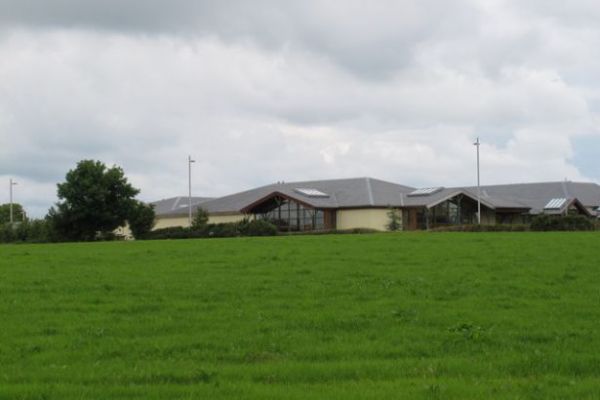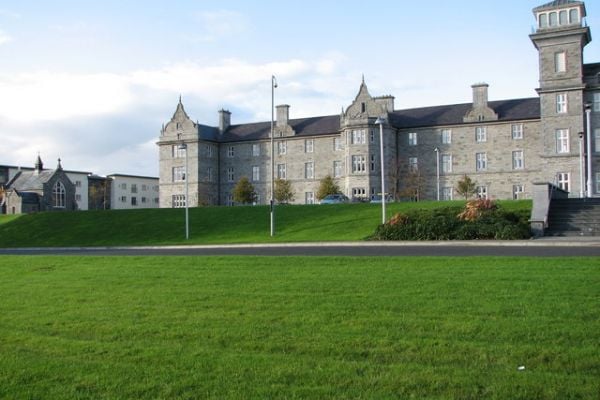Minister for Higher and Further Education Simon Harris has said that the government must decide whether to proceed, pause or proceed with some safeguards as it considers the next stage of easing COVID-19 restrictions.
Minister For Higher And Further Education Statements
As reported by rte.ie, Harris said while speaking on RTÉ's Morning Ireland radio programme that despite the increase in COVID-19 cases, some perspective is needed as more than 90% of people are vaccinated, and that it is not a binary choice whether to continue to reopen or not, but to "ask the question is there a way to proceed with openings [while] retaining vaccine certs or face masks for a bit longer".
The former minister for health reportedly said that a level of scrutiny of the options is required and that the government will consult with public health authorities ahead of any decision, and reportedly also urged the 70,000 people who have had a first dose of a COVID-19 vaccine to come forward for a second dose.
Harris reportedly said that a more widespread booster vaccine programme could be beneficial as was seen in Israel and that advice from the National Immunisation Advisory Committee (NIAC) on that matter is expected next week.
Harris reportedly said that NIAC is assessing the information on a booster programme for more of the population.
NIAC Chair Statements
NIAC chair Professor Karina Butler reportedly said that now might not be the right time to give boosters for the bulk of the population.
Butler reportedly said while speaking on Morning Ireland that it may be beneficial to wait longer and to help with the equity of distributing vaccines on a global basis instead, and that NIAC had been considering a booster campaign as far back as spring and summer and looking at how COVID-19 behaves, but that there is no specific date that NIAC will be giving advice to the government on a booster programme.
Butler reportedly said that it will happen when "it's ready to go" with advice that is robust and complete and reportedly added that considering boosters involves considering the benefits and harms.
Bulter reportedly said that NIAC is also reviewing the evidence on the impact of infection on individuals under the of 12 and keeping that under constant review with regard to the vaccine roll-out, and, "The first goal was to get everyone vaccinated and that is still the prime focus if we want to reduce circulation and protect those for whatever reason the vaccine hasn't fully protected them.
"As always we are following the evidence. We know that immunity is quite long-lasting."
Butler reportedly said that there is a number of "readily identifiable factors" contributing to the spread of COVID-19 and reportedly noted that the "elephant in the room" is that a large number of people remain unvaccinated, and that 80% of the patients who end up in the ICU with COVID-19 are not fully vaccinated.
Infectious Diseases And Internal Medicine Physician Statements
Meanwhile, Infectious Diseases and Internal Medicine physician at St. James's Hospital in Dublin Doctor Clíona Ní Cheallaigh reportedly said that there is a need to consider booster vaccines but reportedly also called for the focus to be placed on global vaccinations to curb the spread of the virus.
Ní Cheallaigh reportedly said that there are huge swathes of the world where people are unvaccinated and that this leads to breeding grounds for the Delta variant of COVID-19 and possibly worse.
Ní Cheallaigh reportedly said that St. James's Hospital is not seeing fully vaccinated people with a healthy immune system getting very sick with COVID-19 and needing to come into hospital, and, "The vaccinations are definitely doing their job there. What they don't seem to be able to do is stop the levels of transmission happening in the community."
Ní Cheallaigh reportedly also appealed for pregnant women to get the vaccine as she warned that they can become severely unwell if they are infected with COVID-19, and reportedly said, "These particular variants seem to affect pregnant women and it is such a terrible situation for the woman, for their partner and baby."
Ní Cheallaigh reportedly said that unvaccinated pregnant women have been in intensive care throughout this year and that the evidence shows that there is no risk to the woman or baby from getting the COVID-19 vaccine.
Ní Cheallaigh reportedly said that transmission of the virus is now easier with children in school and people returning to the workplace and third-level colleges.
HSE CEO Statements
Additionally, Health Service Executive (HSE) CEO Paul Reid has reportedly said that he does not think that the recent increase in COVID-19 cases means hitting a "panic button", but that it is a significant early warning that people need to continue to follow all of the public health guidelines.
Reid reportedly said while speaking on RTÉ's Today with Claire Byrne radio programme that there has been a "huge swing" in positivity levels, but that vaccines are working in terms of preventing severe illness and death.
Reid reportedly said that 67% of individuals with COVID-19 in ICUs are unvaccinated, and that that is "hugely disproportionate" when just 8% of the adult population is not fully vaccinated.
Reid reportedly said that social gatherings are contributing to an increase in infections, with people gathering for events such as communions and confirmations, as well as in other settings with larger numbers, and, "I see more meetings happen, more people indoors, and we can go back to work, but we need to go back with the basics right."
Reid reportedly added that it is about reiterating the basics, washing hands, social distancing and following public health guidance, that the HSE is "anxious" to commence the next stage of the booster campaign when it is instructed to do so, and, "We have the workforce, the infrastructure, we will roll out when directed by government", and that the booster campaign among the over 80s is well advanced and that the one being rolled out among the over 65s in residential settings should be completed in two and a half weeks.
© 2021 Hospitality Ireland – your source for the latest industry news. Article by Dave Simpson. Click subscribe to sign up for the Hospitality Ireland print edition.








